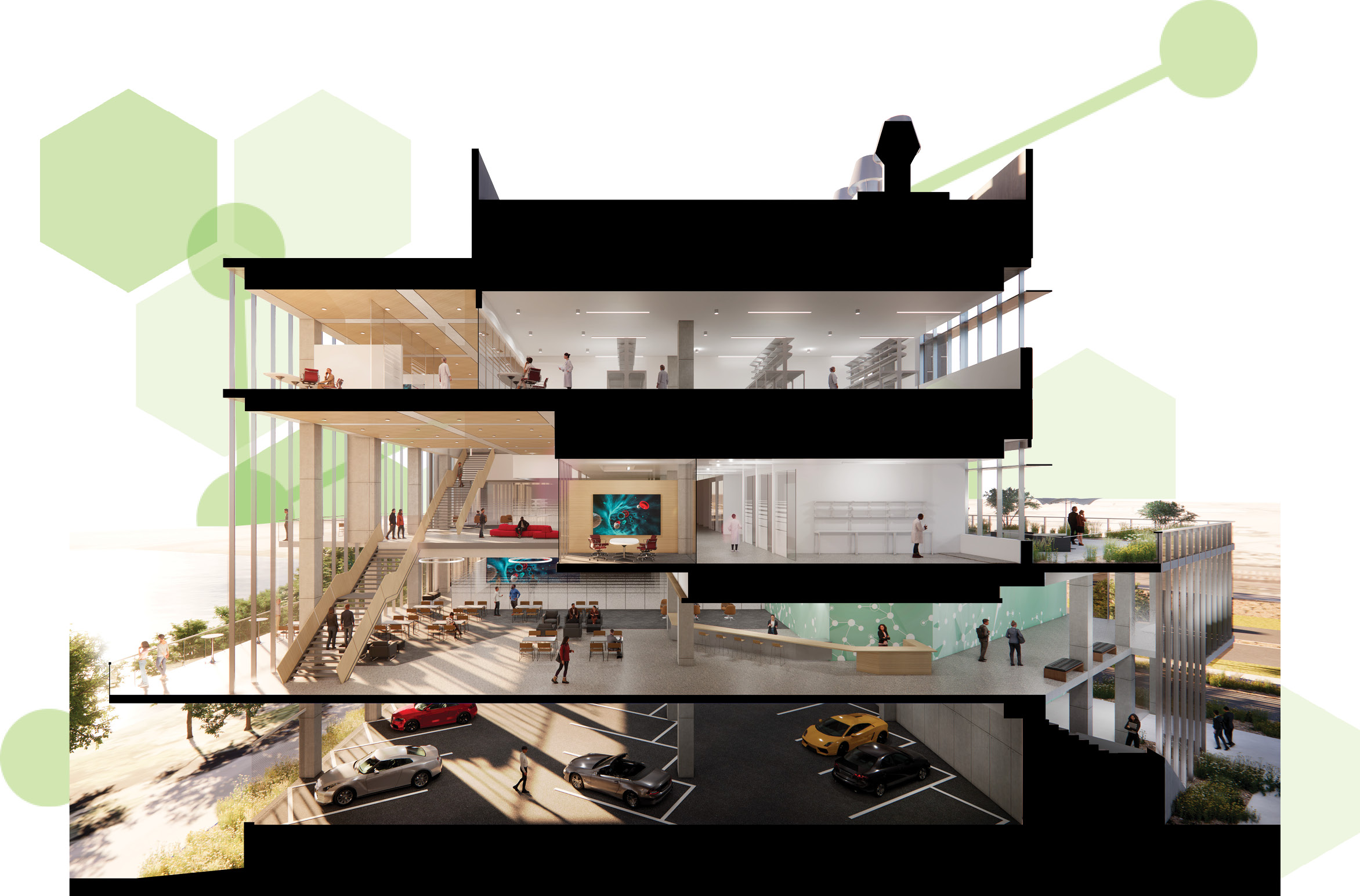Regardless of size or stature, businesses tend to seek the same vital resources when starting out or looking to expand. For most, talent, resources and infrastructure remain at the top of the checklist.
The thought of scarcity no longer lingers in Washington, as building upon these assets has been a strategic focus over the past few years, especially within rural communities. Now, the state works to cultivate thriving industry ecosystems, enabling a network of collaboration driving the future of innovation across all sectors.
Crafting Innovation
In April 2023, The Washington Department of Commerce announced that through its Evergreen Manufacturing Grant program $2 million in funding would be disbursed in hopes of building upon the Building Economic Strength Through Manufacturing (BEST) Act. Following approval from the Washington Legislature in 2021, the BEST Act was created to aid the state in creating 300,000 new manufacturing jobs over the next decade.
A total of six businesses and four innovation cluster organizations were selected in a competitive process to receive $200,000 each in funding. The intentional focus of the program works to attract manufacturing job growth and spur economic opportunities within rural communities around the state.
“These businesses were chosen based on their potential for growth as well as their alignment with the state’s economic development goals. The program considered the applicants ability to create jobs and drive innovation,” says Washington State Department of Commerce Business Development Managing Director Radi Simeonova. “Additionally, we awarded several cluster organizations with innovative projects or workforce development initiatives, further enhancing the program’s impact on the state’s manufacturing ecosystem.”
In Spokane County, the Evergreen Bioscience Innovation Cluster will use its funding to build out a Bioscience Innovation Building (BIB). Together, Impact Washington, the Port of Benton, Greater Spokane, Inc. and the Health Sciences and Services Authority of Spokane County are joining forces on the region’s first dedicated research lab for pharmaceutical and medical device development. The proposed 77,000-sq.-ft. facility features multiple floors, providing room for companies looking to establish a base in the region. Coupled with over 70% of leasable wet lab space, entrepreneurs can find quality equipment to perfect their innovative projects.
“I’m very serious about building the bioscience ecosystem of the future,” says Evergreen Bioscience Innovation Cluster CEO Katrina Rogers. “Bioscience is more than just pharmaceuticals and medical devices. I think of industrial bioscience and agricultural bioscience, so we’re perfectly placed to work on that.
“We want our benefits to be spread out broadly beyond the Spokane region. We’d like to establish life science hubs in communities across the state so that each can grow and expand in the way that they want to, but then contribute to this bigger network of life science that occurs across the region.”
While a site has yet to be determined, Rogers and her team hope to establish the BIB in the county’s university district. Spokane County is uniquely positioned in proximity to two medical schools, eight regional universities and three community colleges, striking gold in terms of access to the talent pool. Beyond fresh talent, the region holds over 20% of employees working in health-related fields, cementing the need for this infrastructure.
Through an educational scope, this provides both professors and students with an immersive experience and opportunity to learn from and engage with entrepreneurs and bioscience companies, essentially creating a “biosciences living room” in Spokane, according to Rogers. For institutions like Washington State University, which runs a local incubator, it will provide a seamless transition for talent to stay and grow in the region.
As of now, funding supports a site selection study and preliminary design work conducted by Spokane-based ALSC Architects. The BIB is expected to take two to three years to construct once the site selection process concludes, creating 384 new jobs upon completion.
Leveling Up With ICAP
The Evergreen Bioscience Cluster is a prime example of the state’s strategic focus on building healthy industry ecosystems.
It is one of the first clusters to come to fruition from Washington’s Innovation Cluster Accelerator Program cohort, or ICAP, which awarded $500,000 to nine private-public organizations to build clusters that span a variety of industries.
The program launched in 2022, providing funding, strategy workshops, leader development programs, an onboarding program, branding and communications guidance and one-on-one support from the ICAP team.
“We are building the future by building up on our historic strengths,” says Simeonova. “Innovation helps our core industries diversify and thrive. For example, for a century we have been a global hub for commercial aerospace manufacturing. Today, we are home to several innovative companies developing electric or hybrid electric planes as well as sustainable aviation fuel.”
From life sciences, aerospace, automotive, information technology and renewable energy this initiative focuses on strengthening the state’s leading industries. The goal of cluster creation is to connect industry leaders, entrepreneurs, government, academia and investors so communities can address challenges and grow targeted industries with ease. In doing so, the aim is to provide a pull for domestic and international businesses to invest in an established industry ecosystem.

The 77,000-sq.-ft. BIB facility will offer 55,000 sq. ft. of leasable space.
“By supporting a range of innovative sectors, Washington continues to build a resilient and diversified economy that is less susceptible to economic downturns,” says Simeonova.
Small Business Support
Washington received $163.4 million from the U.S. Treasury Department in March 2023, which the state is using to expand its Small Business Credit Initiative (SSBCI) program. The program first launched in 2016 with $19.7 million in funding from the 2010 Small Business Jobs Act, and the state successfully turned it into $150 million in new capital.
With this new round of funding the state has plans for five targeted programs under SSBCI 2.0.
- Micro and Small Business Loan Fund – Assist small businesses with obtaining loans through participating lenders and Community Development Financial Institutions.
- Revenue-based Loan Program – Provides access to capital through a revenue-based debt product that focuses on underbanked communities around the state.
- Washington State Venture Capital Fund – An equity or venture capital program that provides capital commitments to new venture capital funds with diverse investment teams or that are focused on investing in underserved startups or targeted investment objectives.
- Commercial Real Estate Loan Program – Provides subsidized owner-occupied commercial real estate loans that can be used for tenant improvements, construction, purchase or refinance.
- Small Business Collateral Support Program – Provides small businesses loans to companies that have trouble qualifying for short-term loans through collateral support.
“Our ultimate goal is to reduce redundancies, build upon successes and create an environment where there is no wrong door to a business in need of assistance,” says Washington State Department of Commerce Small Business Training and Education Senior Managing Director Robb Zerr.
Lessons from the initial SSBCI program showed that entrepreneurs in Washington have a tremendous need for technical assistance, training, education and access to capital, notes Zerr.
In addition to new program offerings, the state has also developed its own Small Business Training and Education Center (MyStartup365.com).
The online platform provides education and training to start or grow a business in Washington, most of these resources and programs come at no cost to residents. As the state keeps focus on increasing economic development opportunities for its rural communities, increasing access to education and capital remains a critical factor.
“Where gaps existed, the state was able to step in with programs targeted to specific communities that needed technical assistance, education and capital,” says Zerr. “This network is becoming more tightly knit as we move forward.”

